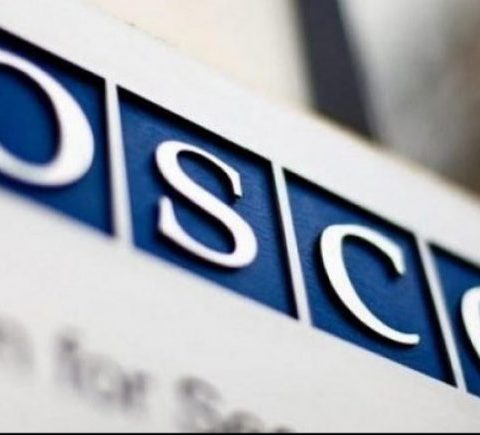By JERINA ZALOSHNJA
ROME, Nov. 17 – Albanian Prime Minister Edi Rama has made an official visit to Italy, focusing on bilateral relations and seeking support for Albania’s arduous EU membership bid.
While in Rome, Albania’s premier met with his counterpart, Italian Prime Minister Mario Draghi and several other key Italian officials.
Prime Minister Draghi said Italy will continue to give “convincing and full support to Albania” in its EU bid as well as its general development.
“Italy is close to Albania on everything, in every inch of its foreign policy in terms of Albania’s integration and accession into the European Union. Italy is following closely and taking notice of the alignment of Albanian standards with those of the European Union, will continue to do so and has done most recently,” Draghi said at a joint press conference. “It is crucial for both Italy and Albania, for stability in the Balkans, because Albania’s EU accession process would not happen alone, but also by considering the accession of other Balkan countries.”
Albanian Prime Minister Rama said at the conference that despite the challenges facing all Western Balkan countries, the EU is the only destination. But it is a two-way street, he indicated.
“Everything happening in the Western Balkans, be it for better or worse, has an immediate effect on Europe, because it would suffice thinking that the European Union is the only geographical creature with both an internal and external border and six countries practically living at the heart of the European Union are actually outside the bloc’s external border,” Rama said at the joint press conference.
Answering journalists’ questions, Rama repeated Tirana’s disappointment with individual EU member states holding up the opening of accession negotiations for Albania and North Macedonia.
“It is obvious that the process of convening the first intergovernmental conference between Albania and the European Union and North Macedonia and the EU depends neither on Albania nor on North Macedonia. Given the current circumstances, the process hinges on a veto imposed by Bulgaria, and Albania, in this case, is the weirdest collateral damage one can ever imagine,” Rama said.
He added: “We have delivered on our homework, we haven’t done them for the European Union, but we have done them for ourselves; we will continue to do them for ourselves, not for the EU and as soon as the roadblock will be removed, we will be ready to sit at the table.”
Focusing on bilateral relations with Italy and domestic issues, Rama said he hoped there would be further cooperation in areas such as justice, economy and treaty on retirement benefits of those who had worked in both countries.
“I was also able to ask the Prime Minister for an accelerated process of pension rights recognition. There are many Albanians, who work and pay their insurance contributions to the Italian state for years,” Rama said.
He further expressed Albania’s gratitude for Italy’s role over the recent decades.
“A lot has been done. Italy has played a key role throughout this not-easy transition period from an isolated dictatorial regime to a functioning democracy,” Rama said. “We would never be able to express through words all the gratitude to this country, to all centre-left and centre-right governments that never changed their attitude toward Albania.”
Rama also held a meeting with Italian Foreign Minister Luigi Di Maio, and told journalists after the meeting the two had discussed several bilateral issues of shared interest.
“We will continue to work with projects, from the railways, which have to do with the maritime economy, to infrastructure, agriculture, tourism, culture and so on, of course without forgetting what we said, about these pillars that have been characterized as important points — our cooperation on security and justice,” Rama said.
Prime Minister Rama and Foreign Minister Luigi Di Maio also signed an agreement on participation in the Joint Albanian-Italian Economic Commission, aimed at furthering economic ties.
Italy has been designated as a strategic partner by Albania’s government, with human and economic ties being perhaps stronger than any other country.
“We now can do a lot more, because it is not only Albanians living and working in Italy, but also a lot of Italian citizens, from entrepreneurs to students of retired people who now live in Albania. The future will bring us increasingly closer with each other,” Rama said.
Italian Prime Minister Draghi echoed that sentiment at the joint press conference.
“Italian-Albanian relations do not need many words. It is a long-standing, very strong and very successful relationship. Italy’s Albanian community is a very large community and obviously very well integrated,” Draghi said. “A large number of Albanian students attend and benefit a lot from our universities. Italian enterprises in Albania are really a great number, both under Italian ownership only, as well as those under joint ownership, which means that in this sector too, the categories of entrepreneurs are close to one another.”
Although the influence of Italian language has been losing some ground to English in recent years, its presence remains strong in Albania, also indicated by Prime Minister Rama’s choice to speak in fluent Italian during the joint press conference with Draghi at Palazzo Chigi, the seat of the Italian government.
In March 2020, during the first wave of the COVID-19 pandemic in Italy, Albania sent Italy 90 doctors and nurses to cope with the pressure the Italian health system was experiencing.
The act of solidarity was not forgotten at the press conference between the two prime ministers, with Draghi expressing gratitude.
Italy is among the top trade partners with Albania, with about 42.8 percent of Albanian exports going to Italy and about 33.4 percent of all products imported by Albania coming from Italy.
“Italy and Albania are also cooperating in agriculture, tourism, services and the ecological transition now,” Italian Prime Minister Draghi said.










